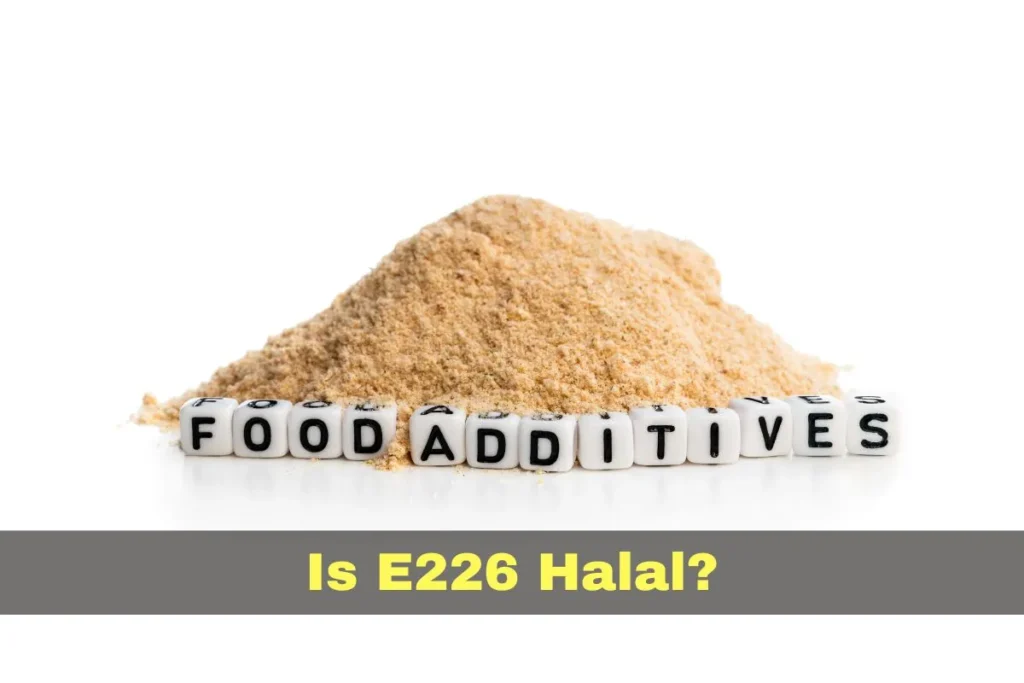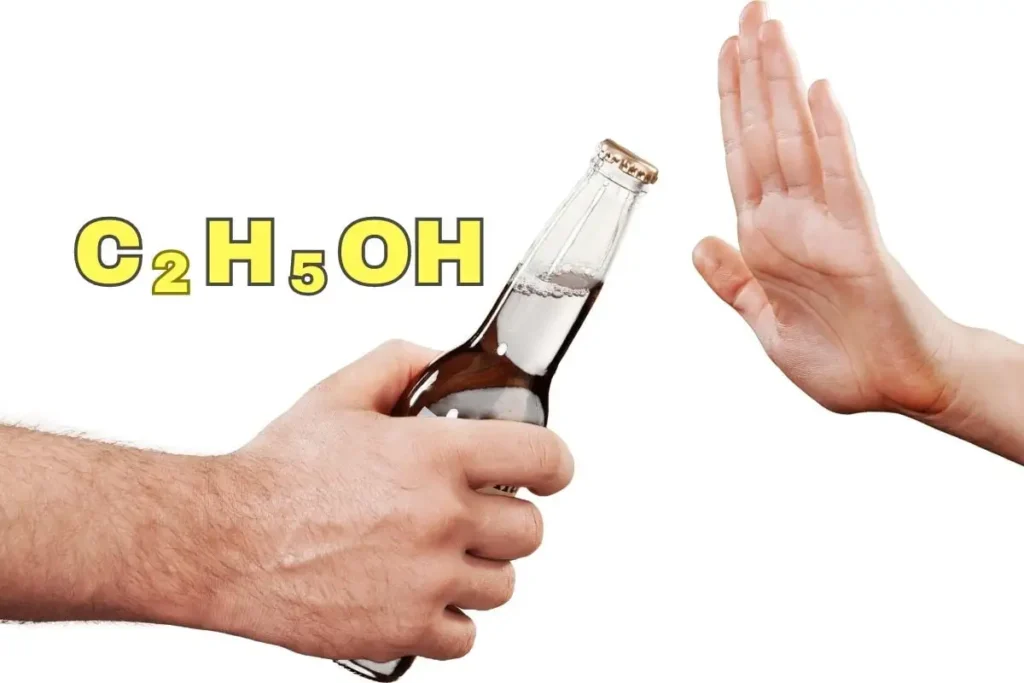In a world where dietary preferences and restrictions are becoming increasingly diverse, it’s essential to be well-informed about the ingredients in the food we consume. If you’ve ever wondered about the halal status of E226, commonly known as Calcium Sulphite, you’re in the right place.
In this article, I will provide a comprehensive guide to E226, covering its chemical structure, source, potential side effects, regulations, dosage, and most importantly, whether it is considered halal or haram.
Key Takeaways
| 📌 E226, also known as Calcium Sulphite, is used in various food products to preserve their shelf life, quality, and freshness. It plays a significant role in items like dried fruits, wines, baked goods, and processed meats. |
| 📌 E226 is derived from inorganic sources and a chemical reaction between calcium carbonate and sulfur dioxide, which does not involve animal-derived or haram components. |
| 📌 E226 is considered halal in Islamic dietary laws based on its source and production process. |
What Is E226?
Let’s kick things off by understanding the basic nature of E226, also known as Calcium Sulphite. This food additive is a chemical compound with the formula CaSO3, and it plays a vital role in the food industry.
Calcium Sulphite is a white, odorless powder that is primarily used as a preservative to extend the shelf life of various food products. Its ability to inhibit the growth of microorganisms makes it an essential ingredient in many processed foods.
Chemical Structure
The chemical structure of Calcium Sulphite is quite straightforward. It consists of one calcium (Ca) atom, one sulfur (S) atom, and three oxygen (O) atoms, represented as CaSO3.
This combination forms a white, crystalline substance that easily dissolves in water. The unique properties of this compound make it suitable for various applications in the food industry.
What Is E226 Made From?
Now that we have a grasp of its chemical composition, you might be wondering about its source. Calcium Sulphite is typically produced through the reaction of calcium carbonate (CaCO3) with sulfur dioxide (SO2).
The resulting product, Calcium Sulphite, is further processed to ensure its purity and suitability for use in food products. It is important to note that the production process aims to eliminate any impurities that may arise from the source materials.
Possible Side Effects
When considering the safety of any food additive, it’s essential to be aware of potential side effects. E226, like many food additives, may have some associated risks, although they are generally minimal. These potential side effects may include:
- Allergic Reactions: Some individuals may be sensitive or allergic to sulfites, which could lead to symptoms such as hives, difficulty breathing, or even anaphylaxis in severe cases.
- Respiratory Issues: Inhaling sulfur dioxide, which can be released during the production of E226, may cause respiratory problems for those who are exposed to it in industrial settings.
- Gastrointestinal Distress: In rare cases, excessive consumption of foods containing E226 may lead to gastrointestinal discomfort, such as stomach cramps or diarrhea.
It’s worth noting that the occurrence of these side effects is relatively rare and mainly associated with high levels of exposure. The vast majority of people can safely consume products containing E226 without any adverse effects.
Regulations and Guidelines
Regulations and guidelines surrounding food additives are essential for ensuring consumer safety. Here’s a summary of the key regulations and guidelines related to E226:
- The United States Food and Drug Administration (FDA) has classified Calcium Sulphite (E226) as “generally recognized as safe” (GRAS) for use in food products.
- The European Food Safety Authority (EFSA) has established an acceptable daily intake (ADI) for E226, ensuring that its consumption remains within safe limits.
- The Codex Alimentarius, an international food standards organization, has also set guidelines for the use of Calcium Sulphite in food products, emphasizing its safe and responsible usage.
Please note that regulations and guidelines may evolve over time, so it’s essential to refer to the latest information from official sources for the most up-to-date information on the topic.
Dosage and Administration
The correct dosage and administration of E226 in food products are crucial to ensure both its efficacy as a preservative and the safety of consumers. While specific dosages may vary depending on the food item and its intended use, it’s typically used in small quantities to achieve the desired preservative effect without impacting the taste or quality of the product.
Is E226 Halal or Haram?
Now, the pressing question on many people’s minds is whether E226, Calcium Sulphite, is considered halal or haram. The halal status of food additives can be a subject of concern for individuals who adhere to Islamic dietary laws. To determine if E226 is halal or haram, we need to consider the source, production process, and potential side effects.
What Is the Source of E226?
E226, Calcium Sulphite, is primarily derived from the reaction of calcium carbonate with sulfur dioxide. The source of Calcium Sulphite is inorganic and does not involve any animal or alcohol-derived components. Therefore, from a strict source perspective, E226 can be considered halal, as it does not violate the fundamental principles of halal dietary guidelines.
Is E226 Safe for Consumption?
Ensuring the safety of food additives is a critical factor in determining their halal status. As previously discussed, E226, when used in accordance with regulatory guidelines, is generally safe for consumption.
The potential side effects associated with E226 are minimal and do not inherently render it haram. However, individuals with sulfite allergies should exercise caution, as allergic reactions could pose a risk to their health.
How is E226 Made?
The production process of calcium sulfite (E226) as described involves the reaction of calcium oxide (CaO) or calcium hydroxide (Ca(OH)₂) with sulfur dioxide (SO₂) to produce calcium sulfite. The process is:
- Calcium Oxide (CaO) and Calcium Hydroxide (Ca(OH)₂): These are inorganic compounds derived from limestone or other mineral sources. They do not have any animal origin.
- Sulfur Dioxide (SO₂): This is a chemical gas that is often produced from the burning of sulfur or from the processing of certain ores. It does not have any animal origin.
Given the above, the production process of calcium sulfite does not involve any ingredients of animal origin or any other ingredients that are typically considered haram (prohibited) according to Sharia law.
Find out more:
Is E224 Halal or Haram?
Is E227 Halal or Haram?
Conclusion
In conclusion, E226, Calcium Sulphite is deemed halal according to Sharia law. It is a food additive commonly used in various food products to extend shelf life and preserve quality.
As with any dietary concern, it’s crucial to stay updated on the latest regulations and guidelines related to E226, as they may evolve over time. Additionally, individuals with specific allergies or dietary restrictions should consult with healthcare professionals or religious authorities for personalized guidance.
Allahu A’lam (Allah Knows Best)
FAQ
What Are Some Common Food Products that Contain E226?
Calcium Sulphite (E226) is commonly used in various food products, including:
| Food Product | Usage of E226 |
|---|---|
| Dried fruits | As a preservative to maintain freshness |
| Wine | To prevent oxidation and spoilage |
| Baked goods | As a dough conditioner and preservative |
| Processed meat products | As an antimicrobial agent |
| Soft drinks and fruit juices | To preserve flavor and color |
These examples highlight the versatility of E226 as a food preservative in various products, all of which can be consumed by individuals following halal dietary guidelines.
What is the CAS number of E226?
The CAS number for Calcium Sulphite (E226) is 10257-55-3. This unique identifier is used for referencing and identifying the compound in various regulatory and scientific contexts.
Is E226 banned in any country?
E226, Calcium Sulphite, is not banned in any country for general use in food products. However, it’s essential to verify the latest information from official sources, as regulations may change over time. Always consult relevant authorities for the most current data on E226’s status in specific regions.
- Is Pop Tarts Halal? What You Need to Know - February 18, 2024
- Are Graham Crackers Halal in Islam? - January 19, 2024
- Is Keebler Wheatables Halal? - January 18, 2024





